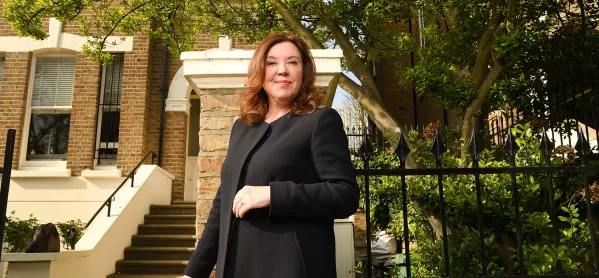School building space could be used for childcare, says commissioner

Falling pupil numbers will open up “significantly underused” space in school buildings that could be used for early education and childcare, according to a new report from the children’s commissioner.
The Vision for Childcare report, released by Dame Rachel de Souza today, finds that drawing on school resources to increase provision for two-, three- and four-year-olds in school could help alleviate pressure on the country’s childcare system.
It also calls for an extended school day so that children aged 5-14 can be cared for on school premises.
The children’s commissioner says this would address the biggest existing gap in childcare provision, with the majority of areas saying there is a lack of provision for after-school care for children.
Headteachers’ leaders have welcomed the idea in principle, but question how such school-based care would be staffed and managed.
- Caterers warn over quality of school meals as costs soar
- Cost of living crisis: Teachers ‘using food banks’, leaders warn
- Phonics: DfE-validated scheme makes ‘only small’ difference
It is expected, the report says, that school rolls in state-funded primary schools will fall by a fifth over the next decade because of declining birth rates. It says this will result in physical space within the schools that could be used for childcare purposes.
Dame Rachel’s report also argues that bringing early education into the “wider school sector” could help solve the staff recruitment and retention issue faced by the sector as a whole, through aligning “workforce training, development and support” with other school staff.
“For too long those educating the youngest children haven’t had the respect and opportunities they deserve, and this needs to change,” the report says.
It adds: “Schools sit at the heart of their communities, visible to and trusted by families in the area.
“When it comes to school-age children, the most straightforward approach to making childcare manageable and affordable is by providing an extended school day so that children can be cared for on school premises. This would address the biggest existing gap in childcare provision, with the majority of areas saying there is a lack of provision for after-school care for children aged 5-14.”
School-based childcare ‘a massive way forward’
The report argues that schools should also be utilised to help address the early education challenge. It says: “As school rolls fall across the country, with the number of pupils in state-funded primaries set to fall by a fifth over the next decade, there will be significant underused space in schools.”
Geoff Barton, general secretary of the Association of School and College Leaders, said: “The principle of using demographic changes which free up space in schools as an opportunity to develop a comprehensive wraparound childcare system is a good one. But there are two major challenges.
“The first is the practical implications over how this is staffed and managed, and ensuring the necessary funding and resources are in place. The second is defining what we mean by childcare.
“Our view is that it should have a clear educational and wellbeing benefit. Investment in high-quality early years provision is crucial in closing the disadvantage gap. And investment in wraparound care for school-age children should provide opportunities for sports, arts and practical activities.”
Speaking to Tes last month, Dame Rachel said that “wraparound childcare” could also help address the ongoing push to drive up school attendance rates.
“We shouldn’t underestimate what could be done with childcare; families trust schools and I think it’s time now to start investing in wraparound childcare. Eight in the morning ‘til 6[pm], I’d like to see those school sites used,” she said.
“That could do so much for children’s attendance - let’s get them to school, get them fed and have them doing the activities that will help them thrive. I see childcare as a massive way forward and am really hoping to see something on that.”
The report comes just after Labour announced plans to set up fully funded breakfast clubs in every primary school in England.
Initially scoped to be paid for by reinstating the 45 per cent income tax bracket, Tes now understands that funding would come from abolishing the non-domicile tax status, raising around £3 billion annually.
You need a Tes subscription to read this article
Subscribe now to read this article and get other subscriber-only content:
- Unlimited access to all Tes magazine content
- Exclusive subscriber-only stories
- Award-winning email newsletters
Already a subscriber? Log in
You need a subscription to read this article
Subscribe now to read this article and get other subscriber-only content, including:
- Unlimited access to all Tes magazine content
- Exclusive subscriber-only stories
- Award-winning email newsletters



